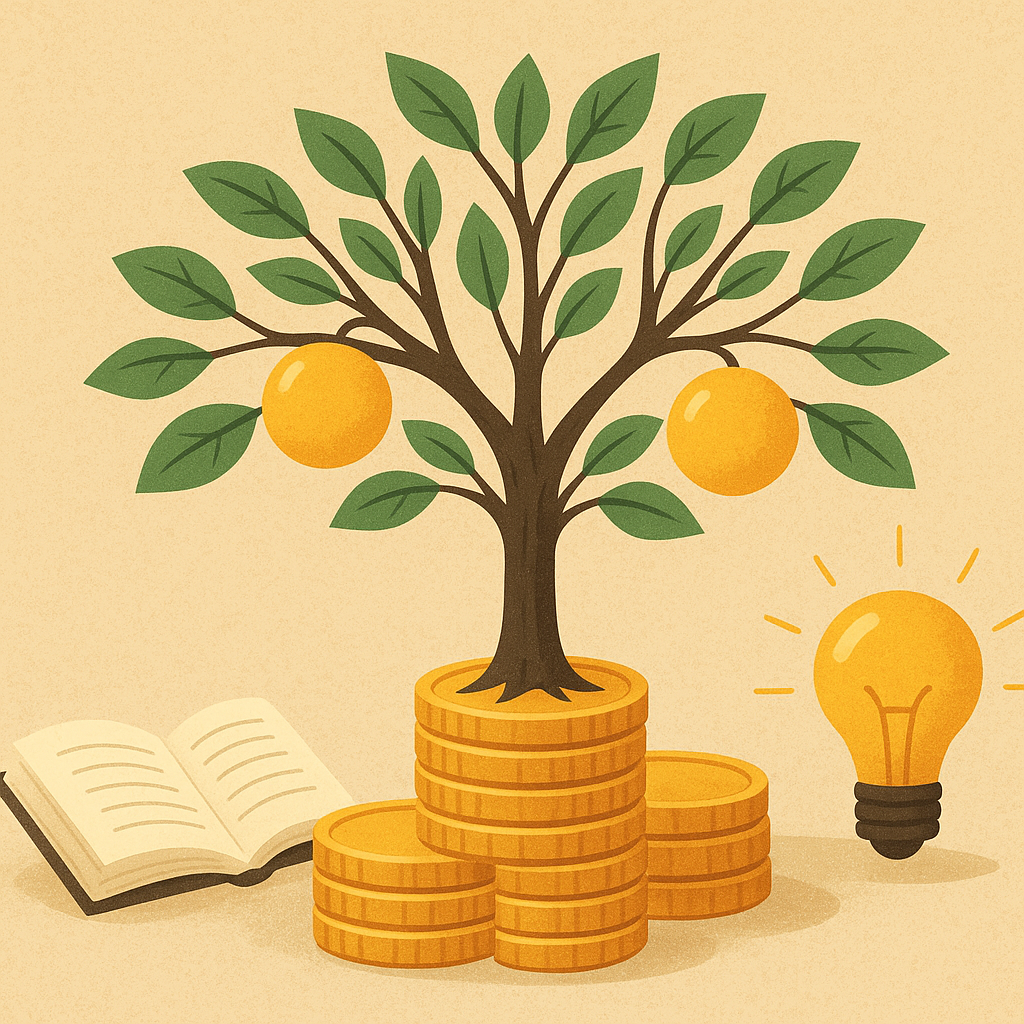Introduction: The Invisible Law of Growth
Thank you for reading this post, don’t forget to subscribe!Compounding is often described as the eighth wonder of the world — a force so subtle yet so powerful that it can transform small, consistent actions into monumental outcomes. While most people associate compounding with money and investment returns, its principle applies universally — to habits, virtues, learning, and personal character.
Every choice we make compounds — either positively or negatively — shaping who we become and what we achieve.
In essence, compounding is not just a financial phenomenon; it’s a philosophy of life.
1. Compounding in Wealth: The Patience Dividend
In finance, compounding means earning returns not only on your initial investment but also on the accumulated returns from previous periods. Over time, this snowball effect creates exponential growth.
However, the key ingredient is time coupled with consistency and discipline.
For instance, investing ₹10,000 per month in a good mutual fund for 25 years can grow into several crores — not because of sudden windfalls but due to steady, disciplined investing.
Compounding rewards the patient, not the impulsive.
The same applies to life — long-term focus with disciplined effort always outperforms short bursts of enthusiasm.
2. Compounding in Habits: The Architecture of Character
James Clear, in Atomic Habits, notes that small habits, repeated daily, can lead to remarkable results.
If you improve just 1% every day, you become almost 37 times better in a year — that’s compounding in action.
Good habits — like reading, exercising, or meditating — may feel insignificant at the beginning, but over years, they transform personality and capability.
On the other hand, neglecting small things — skipping workouts, procrastinating, overusing social media — compounds in the opposite direction, leading to stress, mediocrity, and regret.
So, habitual compounding teaches us:
“Small daily improvements are better than delayed perfection.”
3. Compounding in Virtue and Wisdom
Virtues like honesty, empathy, gratitude, and patience also compound over time.
The more we practice them, the more natural they become — shaping our relationships, reputation, and peace of mind.
A kind act repeated daily doesn’t just impact others — it refines our own nature.
Wisdom too compounds when we reflect upon our experiences, learn from mistakes, and apply insights consistently.
This form of spiritual or moral compounding doesn’t show immediate returns — but its dividends are lifelong: trust, respect, and inner harmony.
4. When Compounding Goes Wrong: The Negative Side
Compounding is neutral — it amplifies whatever we feed into it.
If we consistently nurture anger, jealousy, ego, or laziness, those too will compound — leading to poor judgment, broken relationships, and inner emptiness.
Even in finance, compounding can destroy wealth if one invests in the wrong place or ignores risks.
Thus, awareness, wisdom, and moral clarity are critical before we choose what we want to compound.
“Compounding works both ways — it can build you or break you, depending on what you feed it.”
5. The Role of Consistency and Patience
In an era obsessed with instant gratification, compounding teaches the lost art of delayed rewards.
Patience is the bridge between effort and outcome.
Many people quit before results appear because the early phase of compounding feels slow and invisible.
True growth follows a nonlinear curve — nothing seems to change for a long time, and then suddenly, everything changes.
Whether it’s saving money, learning a skill, or becoming wiser, consistency + patience + direction is the formula.
6. Conscious Compounding: Choosing the Right Path
Since compounding magnifies whatever, we invest time and energy into, we must consciously choose:
- Right knowledge over random opinions
- Right virtues over temporary pleasures
- Right investments over short-term speculation
- Right people over toxic influences
Compounding is not an accident — it’s a conscious, virtuous, and wisdom-filled decision.
It demands evaluation of pros and cons, constant learning, and moral grounding to ensure that our long-term bets align with our deepest values.
7. The Philosophy of Compounding Life
Imagine if we lived our lives like an investor — valuing long-term return on goodness, knowledge, and compassion.
- Every act of kindness builds a portfolio of goodwill.
- Every honest decision earns compound interest in trust.
- Every effort toward learning multiplies our wisdom.
That is spiritual wealth creation — invisible yet infinite.
Long-term compounding, in its purest form, is about becoming a better version of ourselves every single day.
Conclusion: The Compound Effect of Conscious Living
Compounding is more than mathematics — it’s a metaphor for life itself.
What we nurture, we multiply.
The seeds we sow today — in our habits, thoughts, and relationships — silently grow into the forests of our future.
Hence, we must choose our “investments” wisely — not only in finance but also in time, attention, emotions, and values.
Because one day, the interest on our decisions — good or bad — will find us.
The true power of compounding lies not in earning more, but in becoming more.
Key Takeaways
- Small actions + Time = Big Impact
- Compounding works in every sphere of life — wealth, habits, virtue, and wisdom
- It can work positively or negatively depending on what we invest in
- Consistency and patience are the ultimate multipliers
- Conscious choices turn compounding into a lifelong ally

Leave a Reply